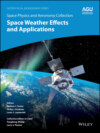Kitabı oku: «Plain English», sayfa 21
PHRASES
341. Co-ordinate conjunctions are used, not only to connect words, but also to connect phrases.
Verb Phrases
342. Verb phrases may be connected by conjunctions. For example:
The People's College is owned and controlled by the working class.
We have made and are making a fierce struggle for a free press.
In this last sentence the two verb phrases, have made and are making are connected by the co-ordinate conjunction and. Often in using verb phrases, we use phrases in which the same helping verb occurs in both phrases. When this is the case the helping verb is quite often omitted in the second phrase and only the participle is connected by the conjunction. As, for example:
The People's College is owned and controlled by the working class.
In this sentence the helping verb is belongs in both the phrases but is omitted in the second phrase in order to make a smoother sounding sentence. In the second phrase, only the past participle controlled is used. It is understood that we mean,
The People's College is owned and is controlled by the working class.
Exercise 8
Note the use of the conjunction in the following sentences to connect the verb phrases. Supply the helping verb where it is omitted.
1. Our system of education is rooted and grounded in outgrown dogmas.
2. We have written but have received no answer.
3. Will you come or stay?
4. Man must struggle or remain in slavery.
5. The workers are organizing and demanding their rights.
6. We must arouse and educate our comrades.
7. We have sought but have not found.
Prepositional Phrases
343. Co-ordinate conjunctions are used to connect prepositional phrases.
These phrases may be used as adjective phrases. For example:
The books in the book case and on the table belong to me.
These phrases may be used as adverb phrases. For example:
He works with speed and with ease.
Exercise 9
Note in the following sentences, the prepositional phrases which are connected by co-ordinate conjunctions. Mark which are used as adjective and which as adverb phrases.
1. Education is the road out of ignorance and into the light.
2. The army charged over the plain and up the hill.
3. The first men lived in groups and in clans.
4. Democracy means government of the people and by the people.
5. Shall we take the path toward progress or toward barbarism.
6. They are not fighting for their country but for their king.
7. Human rights are not protected by the law nor by the courts.
8. The problem of the working class and of society is the problem of equitable distribution.
9. They are deceived by their leaders and by their press.
10. You can pay either by the week or by the month.
11. Our government is not the rule of the majority but of the minority.
Infinitives and Participles
344. Co-ordinate conjunctions are also used to connect infinitives and participles.
Exercise 10
In the following sentences mark the infinitives and participles connected by co-ordinate conjunctions.
1. Those words will inspire us to dream and to dare.
2. We shall learn to produce and to distribute.
3. To be or not to be, that is the question.
4. Puffing and panting, the great engine pulled up to the station.
5. A cringing and trembling coward fears to demand his own.
6. The warped and twisted facts in the daily press deceive the masses.
7. Singing and dancing should be enjoyed by all children.
8. The exploiting and robbing of the people is made a virtue in ruling class ethics.
CLAUSES
345. Co-ordinate conjunctions are also used to connect clauses of equal rank. For example:
The floods came and the winds blew.
Each of these clauses is a complete sentence in itself, but they are combined into one compound sentence by the use of the co-ordinate conjunction, and. Clauses united in this way may have a compound subject and a compound predicate, but two complete clauses must be united by a co-ordinate conjunction in order to form a compound sentence. For example:
The rain and snow fell, and the wind blew a mighty gale.
Here the first clause in the compound sentence, the rain and snow fell, contains a compound subject, rain and snow.
The boys are running and shouting, and the girls are gathering flowers.
Here the first clause has a compound predicate, are running and shouting. The second and connects the two clauses forming the compound sentence.
CORRELATIVES
346. Certain co-ordinate conjunctions are used in pairs, such as both, and; either, or; neither, nor; whether, or. These pairs are called correlatives. The first word in the pair, as, both, either, neither, or whether, is used as an assistant conjunction helping the other to do the connecting. These are used in such sentences as:
I have both seen and heard him.
They will join us either in April or in May.
Labor has received neither liberty nor justice.
Whether to go forward or to retreat was the problem.
Note that nor is always the proper correlative to use with neither and also with the negatives not and never when they apply to what follows as well as to what precedes. For example:
There are thousands in this country who can neither read nor write.
Neither you nor I can foretell the future.
He will not write nor should you.
Capital punishment is nothing more nor less than legalized murder.
We shall never lower our colors nor retreat.
Or is always used with the correlative either. For example:
We will either come or write you.
Either he was mistaken or he deliberately lied.
Exercise 11
Note the use of the co-ordinate conjunctions and, but, or and nor, in the following quotation. Mark especially the use of and as an introductory conjunction, introducing a new sentence, but connecting it with that which has gone before.
In my judgment slavery is the child of ignorance. Liberty is born of intelligence. Only a few years ago there was a great awakening in the human mind. Men began to inquire, "By what right does a crowned robber make me work for him?" The man who asked this question was called a traitor.
They said then, and they say now, that it is dangerous for the mind of man to be free. I deny it. Out on the intellectual sea there is room for every sail. In the intellectual air, there is space enough for every wing. And the man who does not do his own thinking is a slave, and does not do his duty to his fellow men. For one, I expect to do my own thinking. And I will take my oath this minute that I will express what thoughts I have, honestly and sincerely. I am the slave of no man and of no organization. I stand under the blue sky and the stars, under the infinite flag of nature, the peer of every human being.
All I claim, all I plead is simple liberty of thought. That is all. I do not pretend to tell what is true nor all the truth. I do not claim that I have floated level with the heights of thought, nor that I have descended to the depths of things; I simply claim that what ideas I have, I have a right to express, and any man that denies it to me is an intellectual thief and robber.
Every creed that we have today has upon it the mark of the whip or the chain or the fagot. I do not want it. Free labor will give us wealth, and has given us wealth, and why? Because a free brain goes into partnership with a free hand. That is why. And when a man works for his wife and children, the problem of liberty is, how to do the most work in the shortest space of time; but the problem of slavery is, how to do the least work in the longest space of time. Slavery is poverty; liberty is wealth.
It is the same in thought. Free thought will give us truth; and the man who is not in favor of free thought occupies the same relation to those he can govern that the slaveholder occupied to his slaves, exactly. Free thought will give us wealth. There has not been a generation of free thought yet. It will be time to write a creed when there have been a few generations of free-brained men and splendid women in this world. I don't know what the future may bring forth; I don't know what inventions are in the brain of the future; I don't know what garments may be woven, with the years to come; but I do know, coming from the infinite sea of the future, there will never touch this "bank and shoal of time" a greater blessing nor a grander glory, than liberty for man, woman and child.
Oh, liberty! Float not forever in the far horizon! Remain not forever in the dream of the enthusiast and the poet and the philanthropist. But come and take up thine abode with the children of men forever.—Ingersoll.
SPELLING
LESSON 20
We found that we often formed adjectives by adding suffixes to other words. We also form many adverbs by the addition of suffixes to other words. Derivative adverbs are formed in the following ways:
1. By adding suffixes to adjectives, chiefly the suffix ly, as for example; chiefly, truly, really, lately, etc.
2. By changing ble to bly, as in ably, nobly, etc.
3. By adding the suffix ward, as in forward, upward, skyward, downward, homeward, etc.
4. We have some adverbs formed by adding the prefix a to adjectives and nouns, as ahead, afoot, afresh, also by adding the prefix be, as in besides, beyond.
We often misspell a number of adverbs by adding s where it does not rightfully belong; as, anywheres, everywheres, backwards, forwards, towards, upwards, downwards, afterwards, homewards, etc. All of these words should be written without the s.
We also have a number of compound adverbs which are made by the union of two other parts of speech, such as sometime, henceforth, forever, overheard, outside, etc.
In the lesson for Monday, Tuesday and Wednesday, adjectives are given having opposite meanings. Make the proper adverbs from these adjectives by the addition of the suffix ly.
Thursday's and Friday's lessons are made up of both adjectives and adverbs that end in ly. Look up in your dictionary and be sure you know which are adjectives and which are adverbs.
Saturday's lesson is made up of compound adverbs.
Monday
Haughty—Humble
Wise—Ignorant
Careful—Careless
Firm—Wavering
Tuesday
Honest—Deceitful
Fearful—Fearless
Punctual—Tardy
Identical—Different
Wednesday
Thoughtful—Thoughtless
Rich—Poor
Attentive—Inattentive
Industrious—Lazy
Thursday
Quickly
Lovely
Clearly
Cleanly
Friday
Homely
Truly
Courtly
Nearly
Saturday
Otherwise
Herewith
Sometime
Always
PLAIN ENGLISH
LESSON 21
Dear Comrade:
In this lesson we are completing the study of conjunctions. We have studied the conjunction last among the parts of speech and in the order of the development of language, the conjunction naturally comes last. The need of connective words does not come in any language until the language is quite well developed. You will notice that the connective words, such as prepositions and conjunctions are the last words the child begins to use. The child first begins to use the names of the things with which it comes in contact, then it learns the words that express what these things do. But it is not until the child begins to reason that it begins to use connective words. These become necessary when we have reached a stage of development where we can consider the relationship existing between things.
The use of conjunctions, however, can be greatly overdone. The long and involved sentences are more difficult to understand. If you will note the authors which you enjoy the most, it will probably be those who use short and crisp sentences. We have some authors who by the use of conjunctions can string one sentence out over several pages. You wonder how they manage to exist so long without stopping for breath. It is very easy for us to fall into this error when we are thinking rapidly and our thoughts all seem to be closely connected. But no mind can grasp many ideas at one time. Break your sentences up and express your ideas concisely and clearly. Use conjunctions rather sparingly, especially these subordinate conjunctions. Do not have too many subordinate clauses in one sentence.
Notice in your reading for this week those who use the short, crisp sentences and those who use the longer and more involved sentences. Notice which are understood more readily and which are more enjoyable to read. Take some of the paragraphs from those who write long and involved sentences and break them up into short sentences and see if these shorter sentences do not make the meaning simpler and clearer. This will be excellent practice also in gaining the power of expression.
Especially in the class struggle do we need those who can write clearly and simply of the great problems of the day. As the work of the world is conducted today, the workers have too little time for reading. They are apt, after a hard day's work, to be too tired to follow an author through long, winding, involved passages.
In the spoken word, this is also true. You will find your hearers much more in sympathy with you if you will use short sentences. Break your thought up so they can readily grasp your meaning and follow you to your conclusion.
Conjunctions are very important to save us from tiresome repetitions and short, jerky sentences, but we must avoid using them too frequently.
Yours for Education,THE PEOPLE'S COLLEGE.
SUBORDINATE CONJUNCTIONS
347. We have found that co-ordinate conjunctions connect words, phrases and also clauses that are entirely independent; that is, they do not depend in the slightest degree upon any other word, phrase or clause. Subordinate conjunctions connect inferior clauses to the main clauses of the sentence. These inferior clauses are dependent clauses. Subordinate conjunctions never connect words or phrases; but only dependent clauses, to the rest of the sentence. Note the following sentences:
He came quickly.
He came on time.
He came when he was called.
In the first sentence the word quickly is an adverb modifying the verb came and answers the question when. It tells when he came. In the second sentence, the phrase on time is an adverb phrase modifying the verb came, and answers the question when. It tells when he came. In the third sentence, the clause when he was called, also answers the question when, and tells when he came. Therefore, it is a clause used as an adverb. It is different from the phrase on time, for the phrase on time does not contain a subject and a predicate.
348. The difference between the phrase and the clause is that the phrase does not contain either a subject or a predicate, while the clause always contains both a subject and a predicate. So in the clause, when he was called, he is the subject and was called is the predicate, and when is the subordinate conjunction, which connects this adverb clause to the verb came, which it modifies. The clause he came, and the clause when he was called, are not of equal rank and importance, because the clause, when he was called, simply modifies the verb contained in the clause he came, by describing the time of the action expressed in the verb came. So the clause, when he was called, is a subordinate or dependent clause, and the conjunctions which connect this class of clauses to the main clause are called subordinate conjunctions.
349. A subordinate conjunction is one that connects a dependent clause to the principal clause.
CLASSES OF SUBORDINATE CONJUNCTIONS
350. Most subordinate conjunctions are used to make adverb clauses. These clauses will answer some one of the questions answered by adverbs. They will tell how, when, where or why the action expressed in the verb in the principal clause occurred. There are six classes of these subordinate conjunctions which are used to introduce adverb clauses. They introduce:
351. Adverb clause of time. These clauses will answer the question when and are introduced by such subordinate conjunctions as, before, since, as, while, until, when, after and as soon as. Notice in the following sentences the difference made in the meaning of the sentences by the use of the different conjunctions:
We waited until you came.
We waited after you came.
We waited as you came.
We waited before you came.
We waited since you came.
We left while you were gone.
We left when you were gone.
We left as soon as you were gone.
352. Adverb clause of place. These answer the question where, and are introduced by the conjunctions, where, whence, whither.
I will go where you go.
The wind blows whither it listeth.
He went whence he came.
353. Adverb clauses expressing cause or reason. These will answer the question why. They are introduced by such subordinate conjunctions as, because, for, since, as, whereas, inasmuch as, etc.
Note the difference in the meaning of the following sentences expressed by the use of different conjunctions:
I will come because you expect me.
I will come since you expect me.
I will come as you expect me.
I will come for you expect me.
I will come inasmuch as you expect me.
354. Adverb clauses of manner. These clauses will answer the question how, and are introduced by such subordinate conjunctions as, as, as if, as though, etc.
Study as though you were in earnest.
Come as if you had been called.
Do as I say, not as I do.
In these clauses of manner, introduced by as if, and as though, were is used in the present form with either singular or plural subjects. For example:
He writes as if he were informed of the facts.
They talk as though they were confident of success.
You act as though I were your slave.
355. Adverb clauses of comparison. These clauses are introduced by the subordinate conjunctions than and as. The verbs are often omitted in these dependent clauses introduced by than and as. For example: He is taller than I. The complete sentence would be: He is taller than I am. He is not so tall as I. Here the sentence would be: He is not so tall as I am.
When the pronoun occurs in these dependent clauses, be sure to use the proper form of the pronoun. It may be the subject or the object of the verb which is not expressed. For example; it is incorrect to say: I am not so tall as him. The correct form is: I am not so tall as he. The complete sentence would be: I am not so tall as he is, and the pronoun should be in the subject form, for it is the subject of the verb is, which is understood and omitted.
The use of the subject or of the object form may make a difference in the meaning of your sentence. For example, you say: I admire them as much as he. You mean that you admire them as much as he admires them. But if you say, I admire them as much as him, you mean that you admire them as much as you admire him. Quite a different meaning!
Be careful in the use of your pronouns in this way, for you can express quite a different meaning. For example, if you say, I care more for you than he, you mean, I care more for you than he cares for you. But if you say, I care more for you than him, you mean, I care more for you than I care for him. A mistake like this might mean a great deal to you some time, if the one to whom you had been speaking had been studying a course in Plain English!
356. Adverb clauses of condition. These clauses are introduced by such conjunctions as, if, provided, supposing, unless, except, otherwise, though, notwithstanding, albeit, and whether. For example:
I will come if you need me.
I will come provided you need me.
I will go notwithstanding you need me.
I will not go unless I am called.
He will not go except he is called.
He will not go though he is called.
He came, otherwise I would go.
He will go whether you go or stay.
When subordinate clauses beginning with if, though or unless are joined to clauses containing might, could, would or should, the verb were is sometimes used with a singular subject, in such sentences as:
If this were true, I should know it.
Unless I were positive, I would not say so.
Though our leader were lost, yet we would not despair.
If he were here, he would explain it himself.
If I were with you, I might make you understand.
Sometimes in sentences like these, if is omitted in the clause, and the verb placed first. For example:
Were he here, he would deny these slanders.
Were he truly class-conscious, he would oppose this war.
Were this fact known, the people would never submit.
These clauses express something which is uncertain, or which is to be decided in the future; a supposition contrary to a fact or a wish. Occasionally you will find the verb be used instead of is, in clauses of this kind introduced by if, though, unless, except, lest, etc. For example:
If it be true, I will hear it.
Though he be guilty, we will not desert him.
In subordinate clauses connected by if, unless, etc., with a principal clause which expresses future time, the present form of the verb is used in the subordinate clause. For example:
If they are willing, we will join them.
Unless he comes, I shall not leave.
If it rains, we will not go.
357. Adverb clauses expressing purpose. These are introduced by such subordinate conjunctions as, that, in order that and lest. For example:
Take good care that you understand this lesson.
I will go today in order that I may meet him.
Watch these carefully lest they be stolen.
Read the labor press that you may know the truth.
Notice that that, when used in this way, as a pure conjunction, means in order that. For example, the sentence above might read:
Read the labor press in order that you may know the truth.
358. Adverb clauses expressing result. These are introduced by the subordinate conjunction that, as for example:
They were so late that I could not go.










